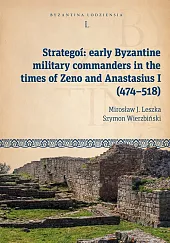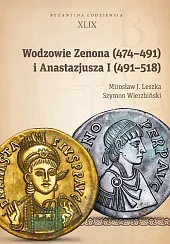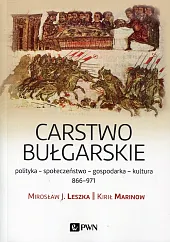Strategoí: early Byzantine military commanders in the times of Zeno and Anastasius (474-518). Byzantina Lodziensia tom L
Strategoí: early Byzantine military commanders in the times of Zeno and Anastasius (474-518). Byzantina Lodziensia tom L
Opis publikacji
The presented book focuses on the commanders of the early Byzantine army during the reign of Emperors Zeno and Anastasius I. The publication is divided into five main parts. The first part presents the Byzantine army, the command of which was the basis for the position of the commanding staff in society. The second part was devoted to the policies of Zeno and Anastasius I regarding the appointment to the highest positions in the Byzantine army, that is, the magistri militum in praesenti, per Orientem, per Illyricum and per Thracias. In the third, the main opponents of the Byzantine troops and of their commanders were characterised, in general terms (the Ostrogoths, Persians and Bulgars). The fourth part traces the activity of military elites during important political events, such as usurpations and military rebellions. The fifth and final part was devoted to ten selected as examples representatives of the military elites of the era of Zeno and Anastasius I. * I h...
The presented book focuses on the commanders of the early Byzantine army during the reign of Emperors Zeno and Anastasius I. The publication is divided into five main parts. The first part presents the Byzantine army, the command of which was the basis for the position of the commanding staff in society. The second part was devoted to the policies of Zeno and Anastasius I regarding the appointment to the highest positions in the Byzantine army, that is, the magistri militum in praesenti, per Orientem, per Illyricum and per Thracias. In the third, the main opponents of the Byzantine troops and of their commanders were characterised, in general terms (the Ostrogoths, Persians and Bulgars). The fourth part traces the activity of military elites during important political events, such as usurpations and military rebellions. The fifth and final part was devoted to ten selected as examples representatives of the military elites of the era of Zeno and Anastasius I. * I have no doubt that the reviewed book will be wormly received in the international Byzantine community. From the review of prof. Ireneusz Milewski University of GdańskThe authors of the publication managed to combine the scientific nature of the argument with an interesting style. The argument is logical, and the theses are complete and consistent with the state of research. From the review of prof. Szymon Olszaniec Nicolaus Copernicus University in Toruń






